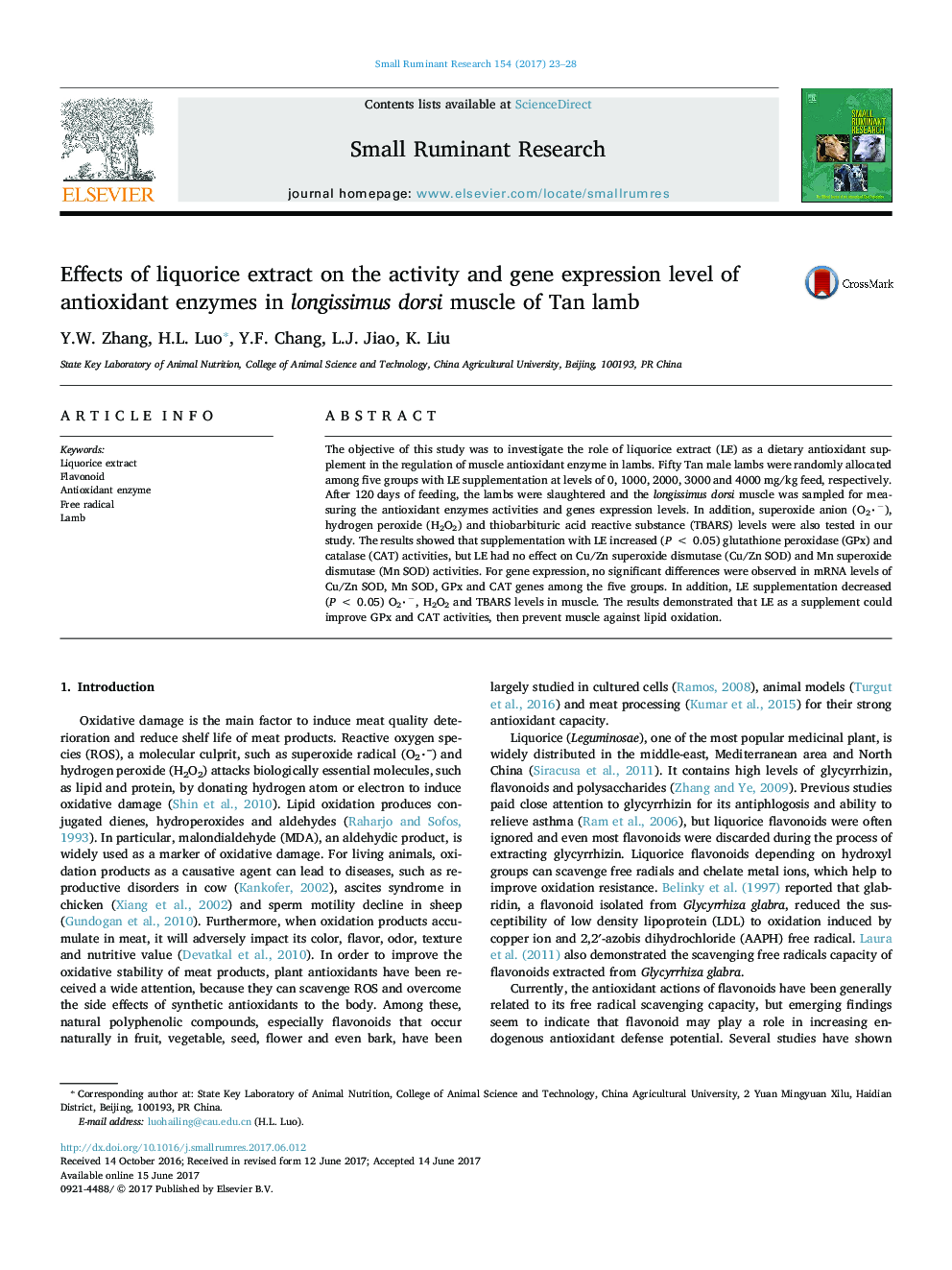| Article ID | Journal | Published Year | Pages | File Type |
|---|---|---|---|---|
| 5544211 | Small Ruminant Research | 2017 | 6 Pages |
â¢Liquorice extract (LE) was fed to lamb and the antioxidant status evaluated.â¢LE decreased superoxide anion and hydrogen peroxide content in muscle.â¢LE decreased malondialdehyde content and protected muscle against oxidation.â¢LE improved glutathione peroxidase and catalase activities.â¢LE had no effect on antioxidant enzyme gene expression level.
The objective of this study was to investigate the role of liquorice extract (LE) as a dietary antioxidant supplement in the regulation of muscle antioxidant enzyme in lambs. Fifty Tan male lambs were randomly allocated among five groups with LE supplementation at levels of 0, 1000, 2000, 3000 and 4000Â mg/kg feed, respectively. After 120Â days of feeding, the lambs were slaughtered and the longissimus dorsi muscle was sampled for measuring the antioxidant enzymes activities and genes expression levels. In addition, superoxide anion (O2â), hydrogen peroxide (H2O2) and thiobarbituric acid reactive substance (TBARS) levels were also tested in our study. The results showed that supplementation with LE increased (PÂ <Â 0.05) glutathione peroxidase (GPx) and catalase (CAT) activities, but LE had no effect on Cu/Zn superoxide dismutase (Cu/Zn SOD) and Mn superoxide dismutase (Mn SOD) activities. For gene expression, no significant differences were observed in mRNA levels of Cu/Zn SOD, Mn SOD, GPx and CAT genes among the five groups. In addition, LE supplementation decreased (PÂ <Â 0.05) O2â, H2O2 and TBARS levels in muscle. The results demonstrated that LE as a supplement could improve GPx and CAT activities, then prevent muscle against lipid oxidation.
